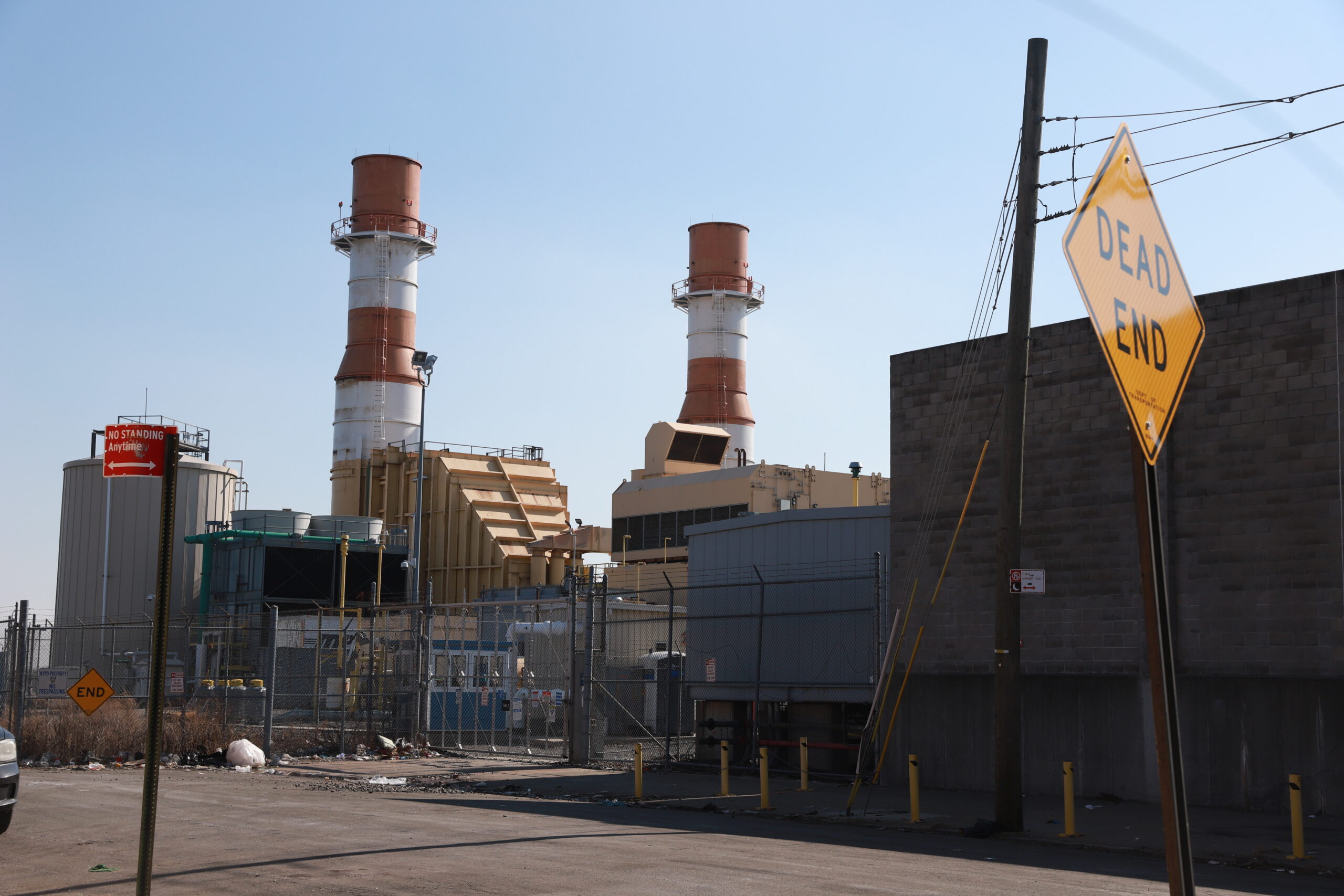As Rikers Island awaits a decision about a possible federal receivership, community members in the South Bronx are calling for control of the jail complex to be transferred to agencies responsible for renewable energy.
More than two dozen high school students assembled at The Point Community Development Center in late September for a teach-in that pressed for Mayor Eric Adams to take action on environmental justice by repurposing Rikers Island ahead of the jail complex’s scheduled 2027 closure.
Specifically, student leaders and climate advocates want to see the largest jail on Rikers Island — the Anna M. Kross Center — transferred for the development of green infrastructure.
They contend that the jail, which currently sits empty, could be used to deliver on legislation pushed by Renewable Rikers passed by the City Council in 2021.
The law aimed to force the Department of Correction to transfer “any unused land or structures” to the Department of Citywide Administrative Services every six months, until all facilities on Rikers Island are closed in August 2027.
For Renewable Rikers, it’s not enough to simply shut down Rikers Island. The climate advocacy group says the future of the jail complex must honor the wishes of those who suffered and lost their lives.
“Few things could make the end of the Rikers Island penal colony more definitive than actually transferring the land for a positive use,” the group’s website reads.
The Renewable Rikers Plan would not transform the island into parks and public spaces. Instead, facilities for food scraps, yard waste, composting and wastewater treatment could be moved to the 400-acre island.
Victor Davila, a community organizer at The Point Community Development Center, explained that while closing Rikers will help a specific group of people, the Renewable Rikers project will benefit every New Yorker.
One type of facility that could be housed on Rikers Island, according to Davila, are peaker plants — warehouses that release large amounts of carbon emissions to help keep electricity flowing across New York City.
Davila noted that studies have shown fossil fuel pollution has a direct correlation with cognitive development issues, neurotypical disorders and conditions like ADHD.
“You guys are being given a handicap from the jump of your lives,” Davila told the youth in attendance, “by being around all this pollution.”
Asked by a show of hands, every participant either suffered from asthma themselves or knew someone with the respiratory condition. Volunteer Geoff Adams noted that the South Bronx has the highest rate of asthma among youth in the country.
Adams (no relation to the mayor) attributes the grim statistic to a history of racist infrastructure in New York City, from redlining that prevented people of color from moving into certain neighborhoods, to the deliberate development of industrial zones in residential neighborhoods where they did live.
“It’s not just about closing [Rikers] down to fix things,” Adams said. “It’s creating, for example, greenhouse energies that won’t require fossil fuels.”
Davila is hopeful the Renewable Rikers plan will move forward. After all, he said, the city already agreed to it, meaning the Department of Correction is legally obligated to turn over unused land. But that doesn’t mean it has happened.
“Ultimately, we have a solution in front of us,” Davila said. “All we have to do is make sure that the city keeps its promise.”
As criminal justice advocate Marco Barrios noted, taxpayers in New York City spend more than $550,000 per year to incarcerate a single individual, while public housing and mental health services face budget cuts.
Before spending time behind bars, Barrios was a war veteran who left the service with post-traumatic stress disorder. Now, he’s working with the Urban Justice Center to decarcerate the criminal justice system in New York City.
“This is not a place for rehabilitation,” Barrios said. “I worked in a Prisoner of War camp during the war and we treated prisoners there much better than we do right here, and that’s a shame.”
The Department of Corrections confirmed to the Mott Haven Herald/Hunts Point Express that no land has been transferred in 2023.
“At this time, DOC has determined that all land is in active use and therefore no land will be transferred,” the agency said in an email, adding that another evaluation will be undertaken by the mayor in December.
As for the Anna M. Kross Center, the DOC says it remains “in active use” but “not housing any people in custody.”

